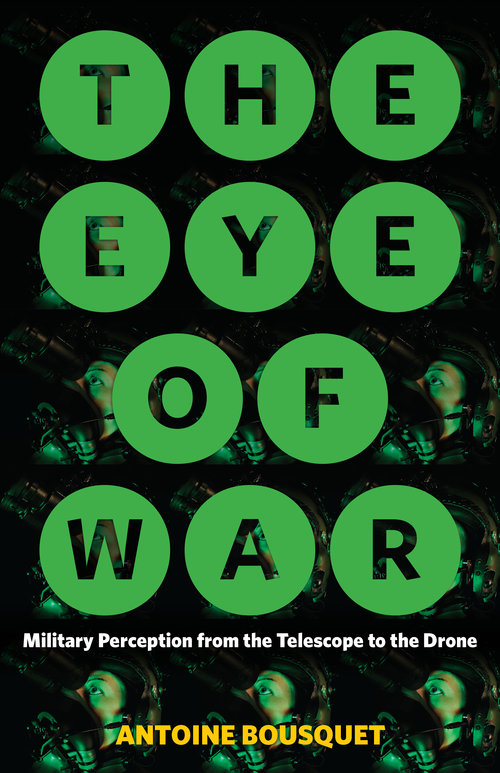ISCI Book Launch - The Eye of War
14 March 2019
Time: 6:00 - 8:00pm
Venue: Room 313, School of Law, Queen Mary, University of London, Mile End Road, E1 4NS London
About the book

"From ubiquitous surveillance to drone strikes that put "warheads onto foreheads," we live in a world of globalized, individualized targeting. In The Eye of War, Antoine Bousquet provides both a sweeping historical overview of military perception technologies and a disquieting lens on a world that is, increasingly, one in which anything or anyone that can be perceived can be destroyed - in which to see is to destroy.
Arguing that modern-day global targeting is dissolving the conventionally bounded spaces of armed conflict, Bousquet shows that over several centuries, a logistical order of militarized perception has come into ascendancy, bringing perception and annihilation into ever-closer alignment. The efforts deployed to evade this deadly visibility have correspondingly intensified, yielding practices of radical concealment that presage a wholesale disappearance of the customary space of the battlefield.
Beginning with the Renaissance’s fateful discovery of linear perspective, The Eye of War discloses the entanglement of the sciences and techniques of perception, representation, and localization in the modern era amid the perpetual quest for military superiority. In a survey that ranges from the telescope, aerial photograph, and gridded map to radar, digital imaging, and the geographic information system, Bousquet shows how successive technological systems have profoundly shaped the history of warfare and the experience of soldiering.
A work of grand historical sweep and remarkable analytical power, The Eye of War explores the implications of militarized perception for the character of war in the twenty-first century and the place of human subjects within its increasingly technical armature."
About the Author
Antoine Bousquet is Reader in International Relations at Birkbeck, University of London
His research spans the study of war and society, the history and philosophy of science and technology, and social and political theory.
His first book The Scientific Way of Warfare is a widely cited account of the influence of major scientific paradigms and key associated technologies on the conduct of war in the modern era.
He has also contributed an array of peer-reviewed articles and book chapterson subjects that include Cold War computing, the revolution in military affairs, jihadist networks, complexity theory, violent aesthetics, nihilism, and the conceptualisation of war.